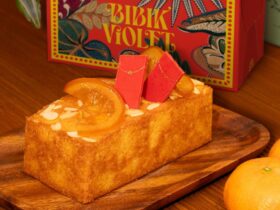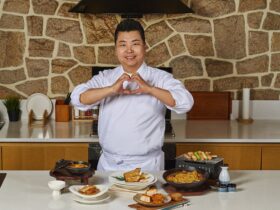What comes to your mind upon hearing the word, “kopitiam“? Hot cups of coffee, generously buttered toast and half boiled eggs?
Epitomizing cozy coffee-shops and traditional breakfasts, kopitiams have a special, yummy place in our hearts. It has become such an integral part of our lives that it has found its comfortable spot at most HDB blocks and marketplaces.
But as you tuck into your usual breakfast set, served by the kopitiam auntie who has memorized your order by heart, do you wonder about the stories behind these humble establishments?
Let us take a stroll down memory lane.
Ya Kun Kaya Toast
Ya Kun’s story is a humbling one – it is a man and his fierce passion for traditional breakfasts. In the early days, Ah Kun, the founder, would sacrifice his own sleep, preferring to stay the night at his stall just so he can wake up on time (at 5am) for his first hungry customers.
His business grew slowly but surely, with customers raving over his simple, yet hearty breakfast. Starting with just piping hot coffee and charcoal-grilled plain toast, it was actually Ah Kun’s wife who introduced homemade kaya (local jam-like spread of egg and coconut) to their toast – hence the signature name.
Killiney Kopitiam
Killiney lovingly dedicates their “story” section to a man, fondly referred to as Ah-Gong. Ah-Gong started with a simple job, as a “tau chew”, a coffee chef. He worked tirelessly and was famous especially for his delicious French toast, which was so famous that it caught the attention of well-known singer, Lu Ding.
Upon trying Killiney’s French toast, she fell in love with it and would constantly mention it in her concerts, giving Killinery a wild boost of popularity. Ah-Gong has since passed down his brewing and kaya-making skills to the next generation, keeping the tradition alive.
Kopitiam (True Singapore Taste)
In his childhood, Lim Bee Huat remembers waking up to see seven 5-cent coins on his table, one for him and six of his siblings. Despite his humble background, he hungered for success. At nine years old, he started working as a coffee boy at the Esplanade Food Centre for $1 a night. Not content with learning just the trade of the kopi business, Lim took up a job additionally as an assistant fruit-seller for 10-cents a day, to master the craft of fruit handling, cutting and display as well.
By the time he was 18, he had the trade figured inside out and started his first bid on an Esplanade drink stall. His exorbitant bid won, and in the next five years, he overtook four more stalls at Esplanade. It wasn’t long before the industry recognized there was someone powerful on the rise – the Kopitiam King now manages over 59 Kopitiams across Singapore.
S-11
The story of S-11 is a simple one. It was a fine day in 1993 when three men and a lady got together with a mission in mind: to concoct a recipe for a potent kopi brew. They named it the S-11. From there, their idea grew exponentially.
They believed in the simple concept of gathering a variety of quality food and beverages stalls under one roof, coupled with outlet accessibility through careful location selection. Serving their trademark coffee while offering a great selection of food choices, S-11 has now expanded to over 15 establishments sprinkled all over Singapore.
Toastbox
In 2005, Toast Box started as a food stall at Food Republic Wisma Atria serving breakfast sets. They believe mornings are made for a fragrant cup of Nanyang Coffee accompanied with freshly toasted bread. With their warm, nostalgic setting, it slowly became the go-to place for those who miss the good old times, and for the younger ones to experience the feel and flavours of a bygone era.
They enjoyed phenomenal success, and in no time outlets sprung up around Singapore. They now have 69 outlets.
NTUC FoodFare
NTUC Foodfare set out to be a different kind of business – established by the Labour Movement in 1995, their purpose was to serve working people and their families affordable food. Their focus was always on providing the ideal family-friendly experience.
Over the years, they made great revolutions to the face of shopping mall kopitiams, for instance, spending their dollar on setting up mini child-friendly playgrounds so that families would be able to eat and play together.
By Nicole Lee
ADVERTISEMENTS
















Leave a Reply